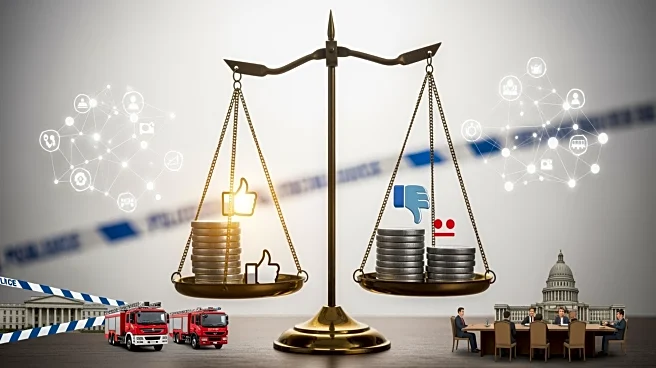What's Happening?
Social media has transformed communication, allowing people to stay connected globally and share experiences instantly. Platforms like Facebook, Twitter, and Instagram facilitate networking and community
building. However, social media also poses risks to mental health, with studies linking excessive use to anxiety, depression, and low self-esteem. The spread of misinformation and fake news is a significant challenge, influencing public opinion and undermining trust in traditional news sources. Social media also impacts cultural trends, with influencers driving consumer behavior and shaping public discourse.
Why It's Important?
The impact of social media on society is vast, influencing communication, mental health, and cultural trends. While it offers opportunities for connection and self-expression, it also poses risks such as misinformation and privacy concerns. Social media empowers individuals to voice their opinions and participate in social movements, but it also requires users to navigate challenges related to privacy and data security. As social media continues to evolve, it is essential to critically examine its implications and develop strategies to harness its benefits while mitigating its drawbacks.
What's Next?
As social media platforms continue to grow, there is a need for stronger privacy regulations and strategies to combat misinformation. Businesses must approach social media strategically, ensuring their online presence aligns with their brand values and resonates with their target audience. Additionally, there is a need for digital literacy and critical thinking skills to navigate the vast amounts of information available on social media.
Beyond the Headlines
Social media's influence extends beyond communication, impacting mental health, political engagement, and cultural trends. It provides a platform for marginalized voices and supports social movements, but also contributes to the spread of misinformation and fake news. The use of social media raises critical issues regarding privacy and data security, highlighting the need for stronger regulations and ethical guidelines.












